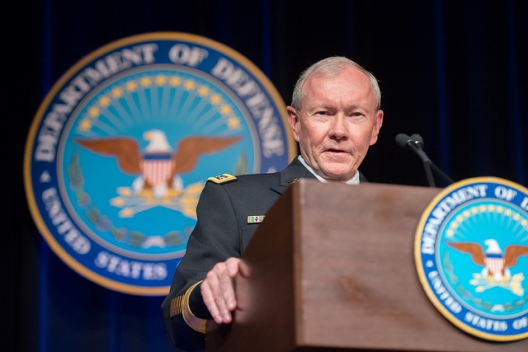 The NATO chiefs of defense “talked a little bit about today, a little bit about tomorrow, and a little bit about 10 years from now,” the chairman of the Joint Chiefs of Staff [Gen. Martin E. Dempsey] said as he returned to Washington today from alliance meetings in Brussels. . . .
The NATO chiefs of defense “talked a little bit about today, a little bit about tomorrow, and a little bit about 10 years from now,” the chairman of the Joint Chiefs of Staff [Gen. Martin E. Dempsey] said as he returned to Washington today from alliance meetings in Brussels. . . .
The chiefs looked at ways to increase the pace of development of the Afghan national security forces – focusing on how to improve the institutions that build and manage them. And, they discussed what can be done to help Afghans hold a credible, transparent and fair presidential election in April. . . .
The other main outcome of the meeting was an increased awareness of the threats and risks building on the alliance’s southern flank. The United States has long spoken about transnational threats emanating from North Africa and the Middle East. Terrorist organizations take advantage of weak governments or ungoverned spaces and use them as safe havens, Dempsey said. Al-Qaida in the Islamic Mahgreb is one of these groups and there are others.
“I am encouraged that the alliance is beginning to understand some of the risks that are building on its southern flank,” the chairman said. “Now we have reached the point of entering into conversations about what as an alliance we might do about it.”
The chiefs spoke about NATO’s nascent cyber defense capability. “It’s mostly all national level,” he said. “We’re trying to find ways to link it together to make ourselves more capable in the cyber dimension.”
Image: Chairman of the Joint Chiefs of Staff, Gen. Martin Dempsey (photo: Communication Specialist 1st Class Daniel Hinton/DoD)
